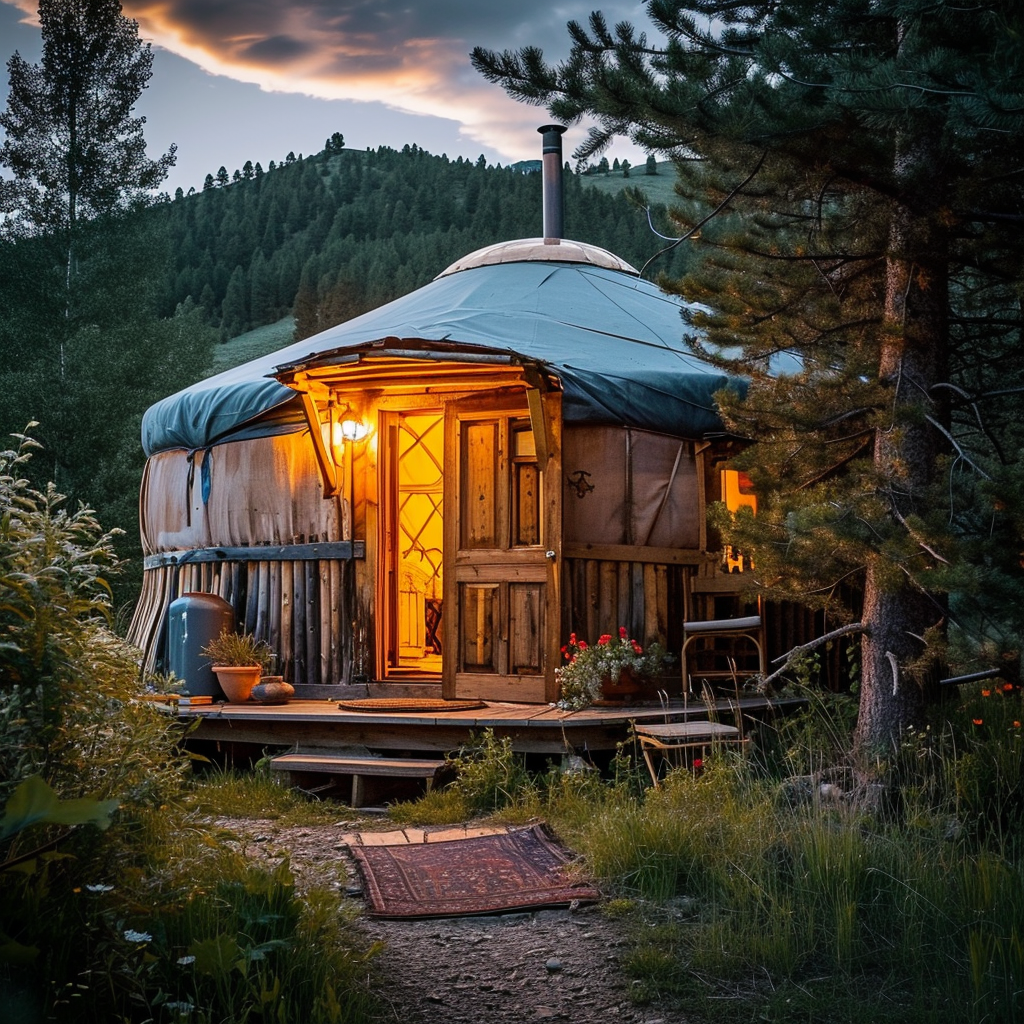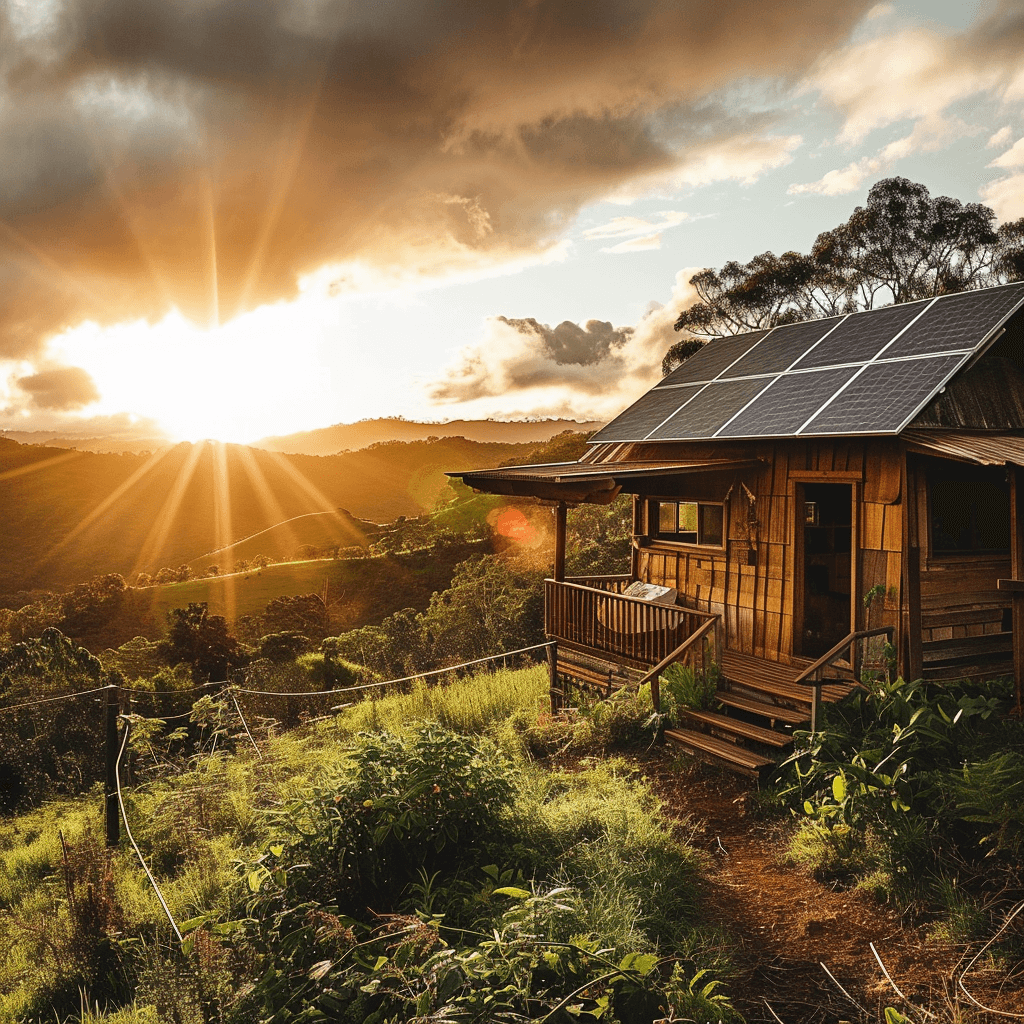Introduction
Is off-grid living sustainable? This is the pressing question in an era where sustainability and environmental consciousness are at the forefront of our minds. Off-grid living, a lifestyle choice that embraces independence from mainstream utility grids, is gaining popularity as a potential solution to environmental challenges. This article delves into the intricacies of off-grid living, examining its sustainability, the advantages of relying on renewable energy sources, and the lifestyle changes involved in adopting a self-sufficient way of life. Join us as we explore the feasibility and implications of living off the grid, a journey towards reducing our carbon footprint and living in harmony with nature.
The Importance of Off-Grid Living Sustainability
Living off the grid has become a hot topic lately. Can’t underestimate the importance of sustainability with this lifestyle. Relying solely on renewable sources, this is a great way to cut down our carbon footprint and protect the environment. Plus, it gives us more self-sufficiency and freedom from traditional energy sources.
Not only that, off-grid living provides financial stability. Install some solar panels or wind turbines and you could kiss your monthly utility bills goodbye. Plus, you’ll feel secure knowing you’re in control of your own expenses.
The perks don’t stop there. A simpler way of life awaits; disconnect from the hustle and bustle and reconnect with your primal instincts. Enjoy the beauty of nature and gain a deeper understanding of what’s really important.
It’s not just about you though. By adopting these sustainable principles, we’ll ensure the planet is livable for future generations. Off-grid living is a shining example of conscious consumption. So why not take the leap? Join the growing community and start your journey today! You won’t regret it.
Understanding the Off-Grid Lifestyle
Living off-grid is all about self-sufficiency and living in harmony with nature. It involves alternative energy sources, water conservation, and sustainable farming.
Energy: Solar panels, wind turbines, and hydroelectric power are the go-to energy sources.
Water: Rainwater harvesting systems and filtration methods provide clean water supply.
Food: Organic farming practices ensure self-sufficiency and reduce dependence on commercial food sources.
Individuals living off-grid prioritize minimalism and resourcefulness. They embrace a simplified lifestyle that encourages self-reliance.
Did you know? According to National Geographic, 1.7 billion people lack access to electricity. That’s why sustainable living options are so important.
To make it real off the grid: Go minimalistic, learn to forage, and get a sturdy shovel. You never know when you’ll find ‘buried treasure’!
Key Factors for Sustainable Off-Grid Living
Living off-grid relies on key factors for sustainability. Renewable energy sources, such as solar and wind, reduce reliance on fossil fuels. Water conservation is also important, like rainwater harvesting, low-flow fixtures, and shorter showers. Self-sufficiency, like growing food, raising animals, and knowing how to handle basic needs, is fundamental. Waste management strategies help too, like composting, recycling, minimizing waste, and upcycling.
It’s also important to consider eco-friendly building materials, like reclaimed wood or natural insulators. In the late 1960s, near Taos, New Mexico, a pioneering project called “The Greater World Earthship Community” established self-sufficient dwellings from recycled materials. This inspired many people to choose a more eco-friendly lifestyle.
Living off-grid means going back to nature and realizing how much we relied on electricity to avoid awkward conversations with neighbors.
Challenges and Considerations of Off-Grid Living
Living off-grid presents many challenges and considerations. You need to be self-sufficient with energy, water, waste and food. Location, climate and resources are key factors in deciding whether this lifestyle is feasible.
Let’s look at the challenges and considerations:
| Aspect | Challenge/Consideration |
|---|---|
| Energy | Limited power supply |
| Water | Scarcity |
| Waste Management | Lack of infrastructure |
| Food Production | Reliance on own efforts |
Energy-wise, you may face limited options. Solar panels or wind turbines may not always provide enough electricity. Unpredictable weather conditions can reduce energy generation.
Water scarcity is a significant challenge. Rainwater harvesting or wells may be the only options. But these could cause quality issues, or require extra treatment.
Waste management can also be difficult without proper infrastructure. Composting toilets or recycling systems help reduce environmental impacts.
Food production is a key consideration. You’ll need to grow your own fruits and vegetables. This means maintaining productive gardens and optimizing crop yields.
Overall, sustainable off-grid living requires overcoming energy supply limits, water scarcity, waste management complexities and food self-sufficiency efforts.
The number of off-grid households in the US grew 6.1% from 2013 to 2015, according to the US Energy Information Administration. This shows that off-grid living is a growing trend, as people get more interested in sustainable lifestyles.
Success Stories and Examples of Sustainable Off-Grid Communities
Sustainable off-grid communities have become increasingly popular, showing inspiring success stories. Earthship Biotecture, Findhorn Ecovillage, Auroville, and Dancing Rabbit EcoVillage are some noteworthy examples.
Each of these has its own unique practices, yet all strive to build harmonious relationships with nature and meet human needs without depleting future generations.
Living off-grid can be incredibly fulfilling – growing your own food, generating renewable energy, and being part of a like-minded community. Don’t miss out on the chance to join a movement that works towards a sustainable future! Take action and make your dream of sustainable off-grid living a reality today.

The Future of Off-Grid Living: Opportunities and Innovations
The future of off-grid living is full of possibilities! Innovations in tech, and a focus on conservation, are making it more attractive for those wanting self-sufficiency and a smaller carbon footprint. Renewable energy sources like solar, wind, and hydroelectric systems are reducing reliance on fossil fuels. And creating surplus energy that can be stored or sold.
Water management systems are also being improved. Rainwater harvesting, greywater recycling, and efficient irrigation are allowing folks to make the most of limited water resources. Smart tech can optimise usage based on real-time data.
Agriculture too is taking leaps forward. Vertical farming, aquaponics, and permaculture, are letting individuals cultivate crops without traditional farming practices.
We can look forward to continued growth and innovation in off-grid living. Decentralised energy grids, regenerative waste management systems, and self-reliance with environmental consciousness.
Don’t miss out! Join the off-grid movement and help build a sustainable lifestyle. Let’s work together towards a greener tomorrow.
Conclusion: The Viability and Potential of Off-Grid Living for a Sustainable Future
Off-grid living has the potential to create a sustainable future. It relies on renewable energy, conserves resources, and encourages self-sufficiency. Plus, it brings people closer to nature and gives them independence.
One special part of off-grid living is designing and building eco-friendly homes. These can include passive solar heating and rainwater harvesting. Additionally, permaculture principles are used to grow food that benefits the environment.
Off-grid living is also prepared for external factors like power outages or disasters. Backup systems are in place, so communities can stay independent even during tough times. This self-reliance helps people and reduces strain on public resources.
Moreover, living off-grid can lead to healthier living. Cleaner air and a slower lifestyle can be enjoyed. Sustainable agriculture also promotes healthy eating.
Before transitioning to off-grid living, research and planning is essential. Know local regulations and consult experts in renewable energy and sustainable construction. This will make the transition smoother and make off-grid living more viable for the future.




